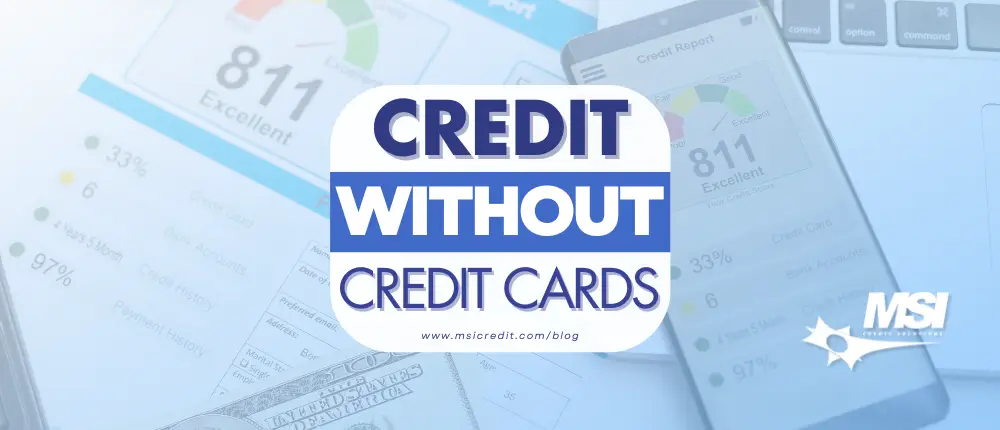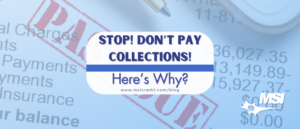Building a solid credit history is one of the most important steps toward achieving financial stability. While credit cards are often thought of as the primary tool for establishing and improving credit, they’re not the only option. In fact, there are several ways to build your credit without ever using a credit card. If you’re looking to build or improve your credit score without relying on plastic, here are some effective strategies you can consider.
1. Use a Credit Builder Loan
- A credit builder loan is a type of loan designed specifically to help people establish or improve their credit. Instead of receiving a lump sum of money upfront, you make regular monthly payments to a lender. The loan amount is held in a savings account or certificate of deposit (CD) until the loan is paid off. At the end of the term, you receive the funds. The key benefit is that the lender reports your payments to the credit bureaus, which helps build your credit score when paid on time.
2. Become an Authorized User on Someone Else’s Credit Card
- If you have a trusted family member or friend with a credit card in good standing, you might be able to become an authorized user on their account. As an authorized user, you’ll be added to their account, and their credit history (including positive payment history and credit utilization) will be reflected on your credit report. This can be a great way to build credit without having to open your own credit card account.
3. Report Rent Payments to the Credit Bureaus
- Many people don’t realize that rent payments can be reported to the credit bureaus, which can help you establish credit. While it’s not always automatic, services like RentTrack, Rental Kharma, or CreditMyRent allow you to report your monthly rent payments to the major credit bureaus. By consistently paying your rent on time, you can demonstrate your ability to manage debt responsibly.
4. Take Out a Secured Loan
- Secured loans are loans backed by collateral, such as a savings account or a car. When you take out a secured loan, you’re typically required to deposit a certain amount of money in a bank account or use a valuable asset as collateral. This reduces the risk for the lender, making it easier to qualify for a loan. As you make regular, on-time payments, the lender will report them to the credit bureaus, helping to build your credit.
5. Use a Personal Loan
If you’re able to qualify for a personal loan, it can also be an excellent way to build credit. Personal loans are typically unsecured, meaning they don’t require collateral. Lenders often report your payment history to the credit bureaus, and as long as you make your payments on time, it can positively impact your credit score. Keep in mind that interest rates on personal loans can vary based on your credit profile.
6. Pay Your Bills on Time
You might not realize it, but regularly paying your bills—such as utility bills, cell phone bills, and even insurance premiums—can help you build credit. Some utility companies and service providers report payment histories to the credit bureaus, and making on-time payments can help establish a positive credit record. You can also consider using services like Experian Boost, which can help get utility and phone payments reflected in your credit report.
7. Maintain a Low Debt-to-Income Ratio
While not directly related to building credit, maintaining a healthy debt-to-income (DTI) ratio can indirectly support your efforts. The lower your debt in relation to your income, the better your financial profile will look to lenders. If you’re able to keep your debt under control, it signals that you’re a responsible borrower, which can work in your favor when applying for loans or other forms of credit in the future.
8. Check Your Credit Report for Errors
Sometimes, errors on your credit report can prevent you from seeing the full benefits of your efforts to build credit. Be sure to regularly check your credit reports (you’re entitled to one free report per year from each of the three major bureaus: Experian, Equifax, and TransUnion) and dispute any inaccuracies you find. Cleaning up your report can give your credit a much-needed boost.
9. Check Your Credit Report for Errors
If you’re serious about building your credit, consider signing up for a credit monitoring service. These services allow you to track your credit score, monitor changes to your credit report, and even alert you to potential fraud. They can also help you stay on top of your credit-building efforts and ensure that any positive activities (like paying off loans or bills) are reflected properly.
Conclusion
Building credit without a credit card is absolutely possible, and it can often be a more practical option for individuals who are wary of credit cards or simply want to explore alternative methods. Whether it’s through a credit builder loan, becoming an authorized user, or responsibly managing your other financial obligations, there are plenty of ways to establish a solid credit history.
At MSI Credit Solutions, we understand that building and maintaining good credit is an important part of achieving financial success. If you need help navigating the credit-building process or improving your credit, don’t hesitate to reach out to us. Our team of experts is here to provide guidance and support every step of the way.

Give us a call today for a free credit analysis and consultation!
(866) 217-9841

MSI Credit Solutions provides superior credit restoration and comprehensive consulting services that are reliable and affordable.
*The information in this article has been provided strictly for educational purposes.





